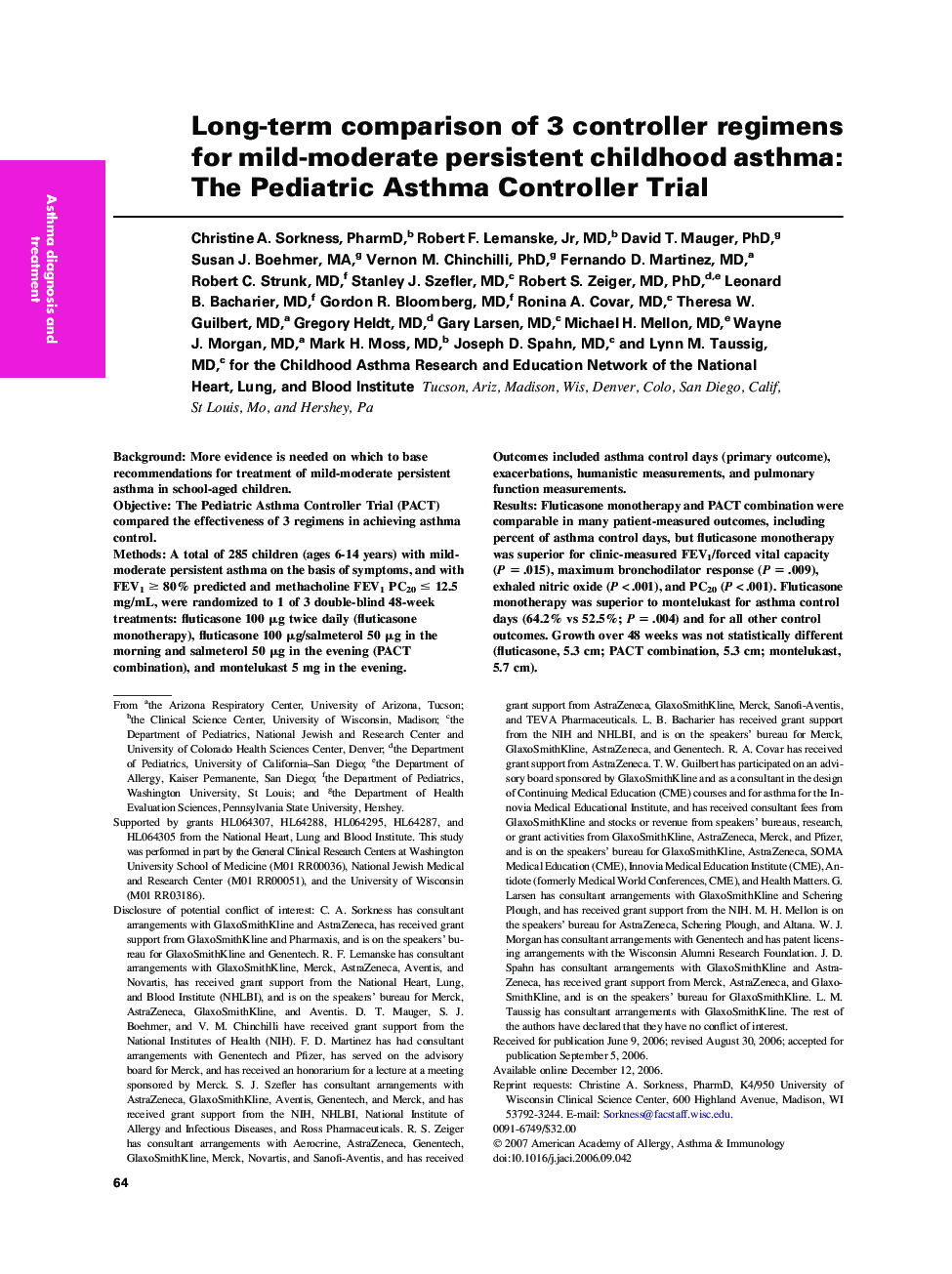| Article ID | Journal | Published Year | Pages | File Type |
|---|---|---|---|---|
| 3202372 | Journal of Allergy and Clinical Immunology | 2007 | 9 Pages |
BackgroundMore evidence is needed on which to base recommendations for treatment of mild-moderate persistent asthma in school-aged children.ObjectiveThe Pediatric Asthma Controller Trial (PACT) compared the effectiveness of 3 regimens in achieving asthma control.MethodsA total of 285 children (ages 6-14 years) with mild-moderate persistent asthma on the basis of symptoms, and with FEV1 ≥ 80% predicted and methacholine FEV1 PC20 ≤ 12.5 mg/mL, were randomized to 1 of 3 double-blind 48-week treatments: fluticasone 100 μg twice daily (fluticasone monotherapy), fluticasone 100 μg/salmeterol 50 μg in the morning and salmeterol 50 μg in the evening (PACT combination), and montelukast 5 mg in the evening. Outcomes included asthma control days (primary outcome), exacerbations, humanistic measurements, and pulmonary function measurements.ResultsFluticasone monotherapy and PACT combination were comparable in many patient-measured outcomes, including percent of asthma control days, but fluticasone monotherapy was superior for clinic-measured FEV1/forced vital capacity (P = .015), maximum bronchodilator response (P = .009), exhaled nitric oxide (P < .001), and PC20 (P < .001). Fluticasone monotherapy was superior to montelukast for asthma control days (64.2% vs 52.5%; P = .004) and for all other control outcomes. Growth over 48 weeks was not statistically different (fluticasone, 5.3 cm; PACT combination, 5.3 cm; montelukast, 5.7 cm).ConclusionBoth fluticasone monotherapy and PACT combination achieved greater improvements in asthma control days than montelukast. However, fluticasone monotherapy was superior to PACT combination in achieving other dimensions of asthma control. Growth was similar in all groups.Clinical implicationsTherefore, of the regimens tested, the PACT study findings favor fluticasone monotherapy in treating children with mild-moderate persistent asthma with FEV1 ≥ 80% predicted, confirming current guideline recommendations.
